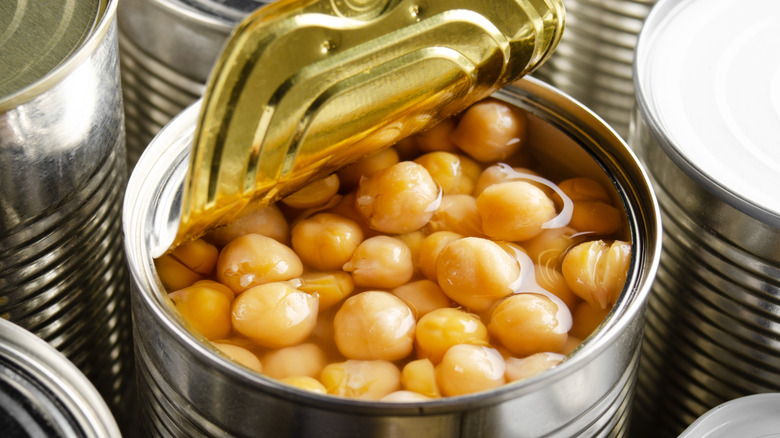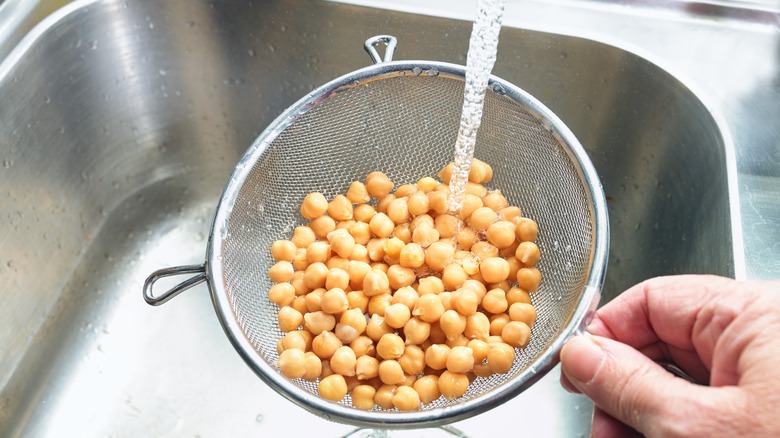Do Canned Chickpeas Come Raw Or Cooked?
Listen, we get it. Sometimes you're not sure about things that are (evidently) obvious to everyone else. Even experienced cooks are likely to have some knowledge gaps, and canned food can be one of them. If you've ever wondered if canned chickpeas are pre-cooked but were too afraid to ask, we've got you.
Canned chickpeas are indeed already cooked before canning, so unlike dried chickpeas, they're ready to eat right out of the can. Of course, there are several delicious ways to prepare them from canned, but canned chickpeas save you the steps of hydrating and cooking them from raw.
Chickpeas, like most canned beans, are typically soaked and then scalded (or blanched if you prefer — in this context, they're the same thing), which entails submerging them in hot water for a very brief period. In this process, the skins are separated from the chickpea and are discarded. They're then canned under pressure, which kills the bacteria naturally present in the chickpeas and prevents any outside spores from getting in and causing spoilage. That way, when you open a can they're ready and safe to eat.
Why you should drain and save that liquid
In most cases, when you open that can, you'll want to drain out the liquid and rinse the chickpeas in water. The canning liquid is typically salty, so rinsing it out allows you to reduce the amount of sodium — if that's a concern of yours. Rinsing also allows for better control of the flavor of whatever you're making, since you're seasoning it yourself.
Rinsing chickpeas and other beans can also make you feel better after eating them. Certain sugars naturally present in the chickpeas are responsible for causing gas, and some amount of them will be drawn out of the chickpeas themselves and into the surrounding liquid as they sit. This means that rinsing them will wash away some of those sugars that might otherwise leave you feeling bloated and gassy after dinner.
But think before you drain — the liquid in cans of chickpeas is a useful ingredient of its own. It's known as aquafaba. Because of its starchiness, it can act as a binder, but it's also thick, foamy, and good at trapping air, which makes it a fantastic vegan substitute for egg whites in all sorts of recipes, from fluffy aquafaba meringues to airy cocktails. Consider setting it aside next time you crack open a can of chickpeas to make a fabulous chiffon cake or egg-free Ramos gin fizz.

